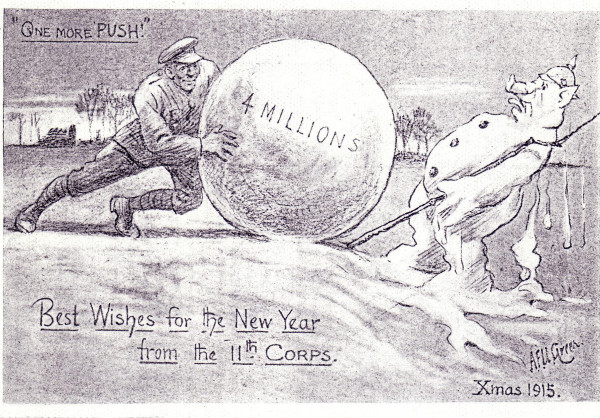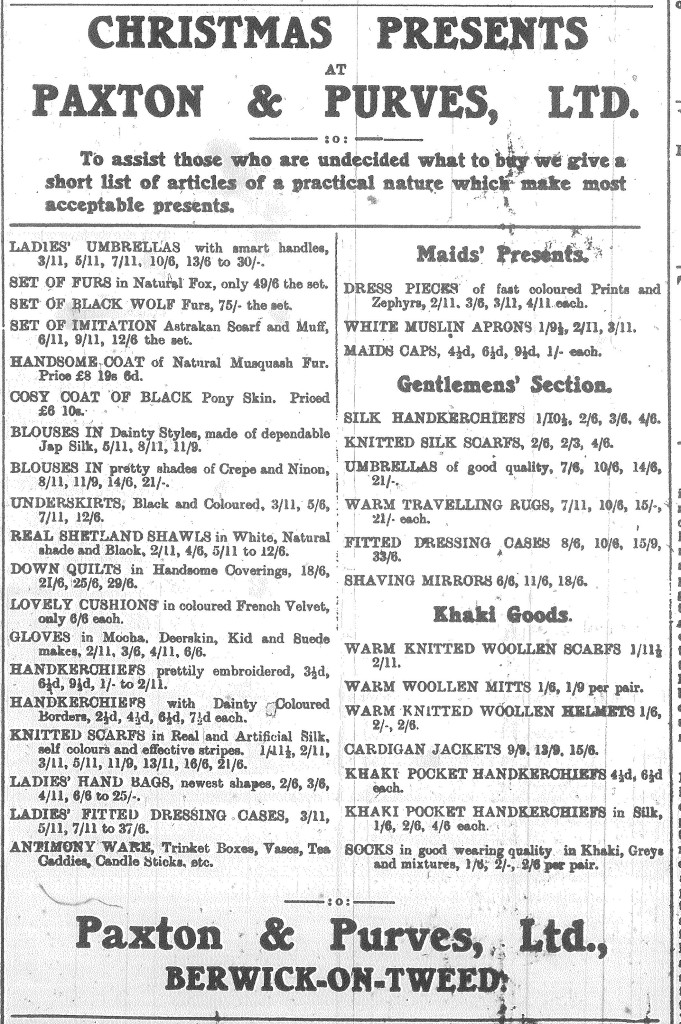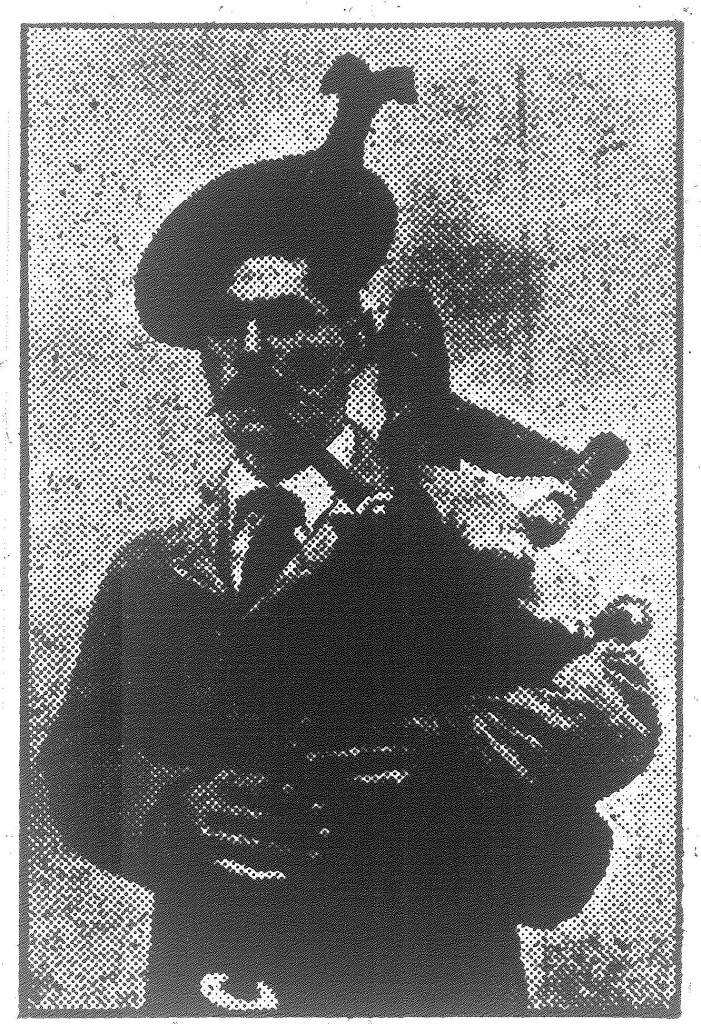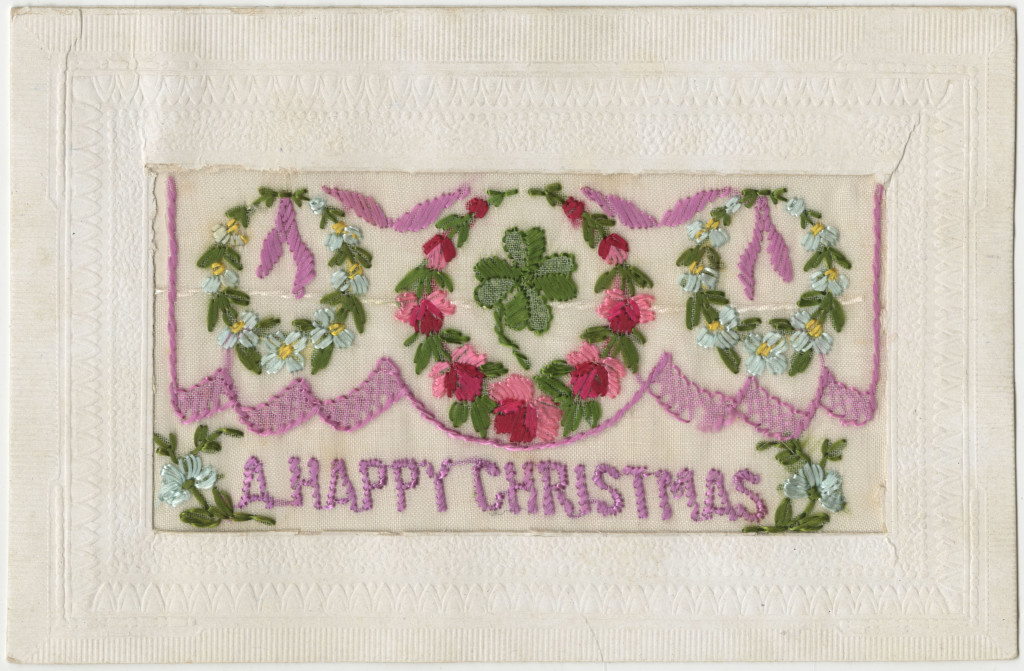BERWICK ADVERTISER, 31 DECEMBER 1915
BERWICK POST OFFICE
The amount of Christmas work dealt with at Berwick Post Office was very much the same as last year, but being spread over a longer period the pressure was not so much felt in consequence. Although the staff has been greatly depleted during the past year everyone put their shoulder to the wheel and the work went through expeditiously. Extra hours were, of course, worked, and the praiseworthy arrangement of supplying refreshment to the workers on the premises was once more in operation.
WW1 Xmas postcard 1915.
Extra help was brought in for rural deliveries in the shape of motor and other vehicles, while the Oddfellows’ Hall again proved a useful clearing house. Parcels delivered during the Christmas week amounted to about 6000, but there was not the usual postings of Christmas cards. A special and most noticeable feature was the large number of parcels posted for soldiers at the front, causing at times very great pressure, out-going mails being very heavy. For the first time at Christmas women were employed to do delivery and collection duty in place of the men on active service and officials speak in glowing terms of the way they discharged their duties. There is still a considerable amount of parcel and other postings passing through, but it is not anticipated that the staff will be heavily taxed at New Year.
CAROL CONCERT AND LECTURE
Interesting Notes on Christmas Carols
An attractive carol concert on behalf of the National Institute for the Blind was given in the Queen’s Rooms, Berwick, on Thursday evening by a number of local talented ladies and gentlemen. The principal object was to assist in raising funds to assist those soldiers and sailors who have lost their sight during the war and for their maintenance in a hostel for the purpose of teaching them some useful trade.
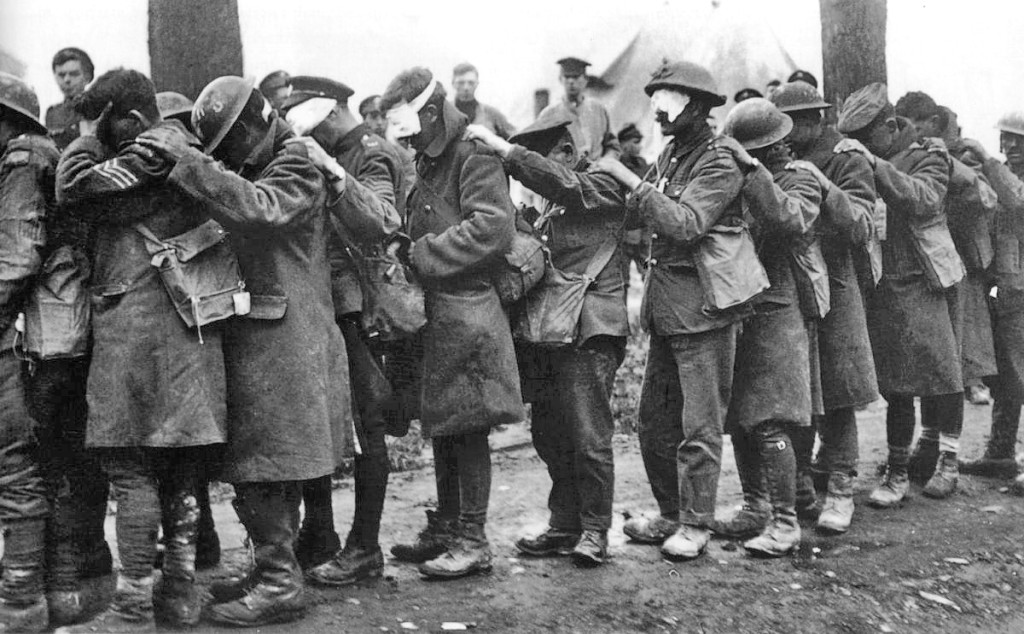
The soloists were Mrs Shepherd, Miss E. Elder, and Messrs Abbott and Riddell, while a duet was rendered by Miss Harbottle and Mr Riddell. Messrs R. Stott and Smith also took part in the programme of carols. The conductor was Mr Geo. Ballantyne, and the accompanist, Miss Skeldon. The programme was ably sustained the whole of the pieces being feelingly and tunefully interpreted, the efforts meeting with the cordial approval of the audience. A feature in the programme was a lecture on carols by Dr Gauntlett, organist and choirmaster in the Parish Church.
LOCAL NEWS
Corner Accident– An accident which might have been attended by serious results took place on Friday last at the foot of Hide Hill. It appears that a tub trap driven by a young lady named Miss Brown, of Tweedmouth, was taking the corner when a collision occurred with a motor car belong to Messrs McBain, Tweedmouth. The tub trap was upset and the young lady received a severe shaking. Happily she suffered no injury, although the pony was slightly cut by the collision. This is only one of many accidents which have taken place at the corners of Hide Hill from time to time, and each succeeding accident accentuates that fact that these sharp turnings are entirely out of date in coping with modern vehicular traffic.
THE PASSING AND APPROACHING YEAR
Again we have reached the closing days of another year. Too well we realise the terrible experiences we have come through during the past twelve months, for there are few homes that have not had their full share of the awful miseries of the Great War. To the bereaved and the maimed ordinary sympathy seems utterly inadequate, and a quiet and subdued silence often speaks more eloquently than any human words can utter. Time is the great healer and consoler in affliction, and it will only be the soothing influence of the ever-revolving seasons that will adequately supply the balm and needed comfort to so many aching hearts which are so utterly bereft. As we approach the end of the year it is natural that many should raise conjectures as to the position the country will be in by another year. Will the war be over? Who can tell. At the same time it seems highly improbable that its duration will extend so long. The material and national resources of Germany will be exhausted ere that time, and there may be an internal upheaval of the Teutonic empire that will hasten the close of the awful devastation.
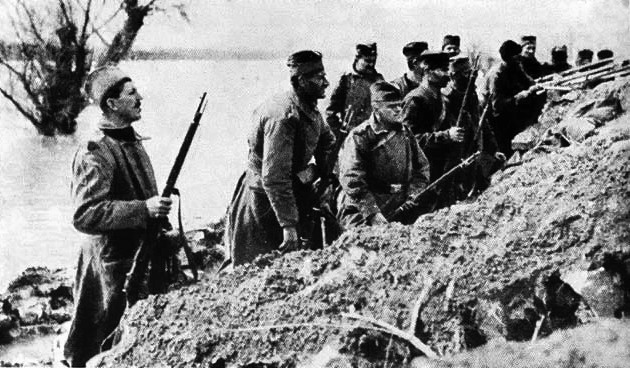
Already the national credit of Germany is steadily diminishing in the exchanges of neutral countries, and this must have a very important bearing on events in the opening periods of the new year. As we make a brief and general survey of the year that is nearly finished we have – great and acute as our sorrows are – reason to feel grateful that we have escaped the general holocaust that has overtaken Belgium, the North of France, and Serbia. And when we think of the recent awful massacres of the Armenian people it makes us realise this more fully. For had the brutal enemy been enabled to land on these shores we would have experienced this to the full. A small sample of it was shown a year ago in the bombardment of defenceless east coast towns where no discrimination or humanity was shown.
Notwithstanding the serious nature of the times we are passing through we desire to wish all our readers
A HAPPY AND PROSPEROUS
NEW YEAR


